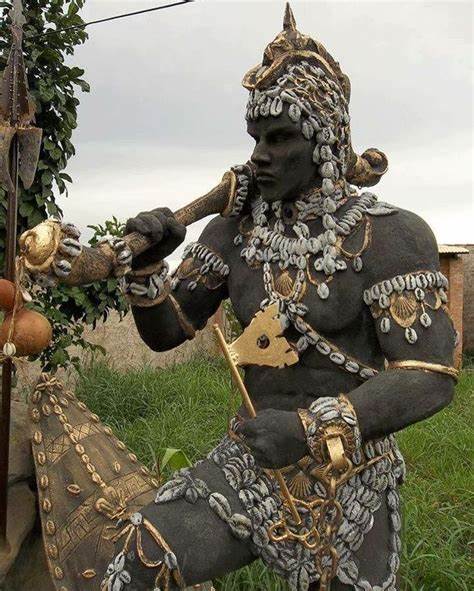Ilọyà, Oníbodè Apòmú: A Historic Tale
Apòmú is a city located in Osun State, Nigeria, situated on the route between Osogbo, the state capital, and Ibadan.
Depending on your direction of travel, whether coming from Osogbo towards Ibadan or vice versa, Apòmú marks the first notable stop along the way.
It is closely adjacent to Ikòyi Ìlẹ́.
The history of Apòmú intersects with the reign of Àlàáfín Abiọdun Adegorolu, the 29th Aláàfin of Ọ̀yọ́, during the year 1789.
This period is marked by the coronation of Aolẹ Arogangan. Notably, Aolẹ Arogangan gained infamy for placing a curse upon the Yorùbá people—an intriguing tale for another occasion.
In those times, upon a king’s ascension, it was customary to undertake expeditions led by the appointed Ààrẹ Ọna Kakanfo, tasked with engaging in battles against designated towns.
Either the Ààrẹ emerged victorious or returned deceased within three months. Thus, when Aolẹ Arogangan prepared for his inaugural expedition, he identified the Balẹ (ruler) of Apòmú as his adversary, sealing Apòmú’s fate.
The alleged cause of this hostility sheds light on prevailing corruption during that era.
Apòmú served as a bustling market town where various Yorùbá groups—including the Ọ̀yọ́s, Ifẹs, and Owus—converged for trade.
Located within Ìfẹ́ territory and at the border of the Olowu’s dominion, Apòmú was a strategic hub for commerce.
During this time, raids and slave trading were rampant, particularly endangering the Ọ̀yọ́ people who traveled from distant regions.
King Abiọdun took measures to combat this menace, issuing strict directives to the Olówu and the Ọọni of Ìfẹ́ to prevent such practices, reinforcing vigilance among the Balẹ of Apòmú and neighboring settlements.
An intriguing anecdote involves Aolẹ, then a private individual engaged in trade, who callously traded away his own companion for merchandise.
Related News: Unlocking the Spiritual Secrets of Gangan, Ancient ‘Mobile Phone’ of Africa
Alerted to an impending abduction by the Ìjẹ̀bú people, the Balẹ of Apòmú intervened swiftly, saving the victim at Apata Ọdaju (the rock of the heartless), earning him a reputation for integrity.
Subsequent investigations exposed the culprit, leading the Balẹ of Apòmú to administer stern punishment to Aolẹ, further fueling their enmity.
Aolẹ later transmitted a symbolic war message to the Balẹ of Apòmú through Agbe’ni Má F’ọhun, a messenger, demanding surrender within seven days.
This ultimatum triggered dramatic events, ultimately leading to the Balẹ seeking refuge under the Ọọni of Ìfẹ́, but to no avail. To avert further calamity, the Balẹ took his life, sending his head to appease the offended monarch.
The aftermath saw Agbe’ni Má F’ọhun bearing witness to the consequences, enduring personal losses inflicted by enraged chiefs.
In the years that followed, Agbe’ni Má F’ọhun settled in Oko Lakalẹ, Ibadan, beside the Ògúnpá River, leaving behind a legacy that echoes in local parlance.
This historical account has birthed proverbs and traditions, enriching the cultural fabric of the Yorùbá people, and offers a glimpse into the intricate tapestry of Nigeria’s past.
You can also read: Yoruba Nollywood Grieves as Actor Sisi Quadri Succumbs to Illness Despite Brave Efforts


